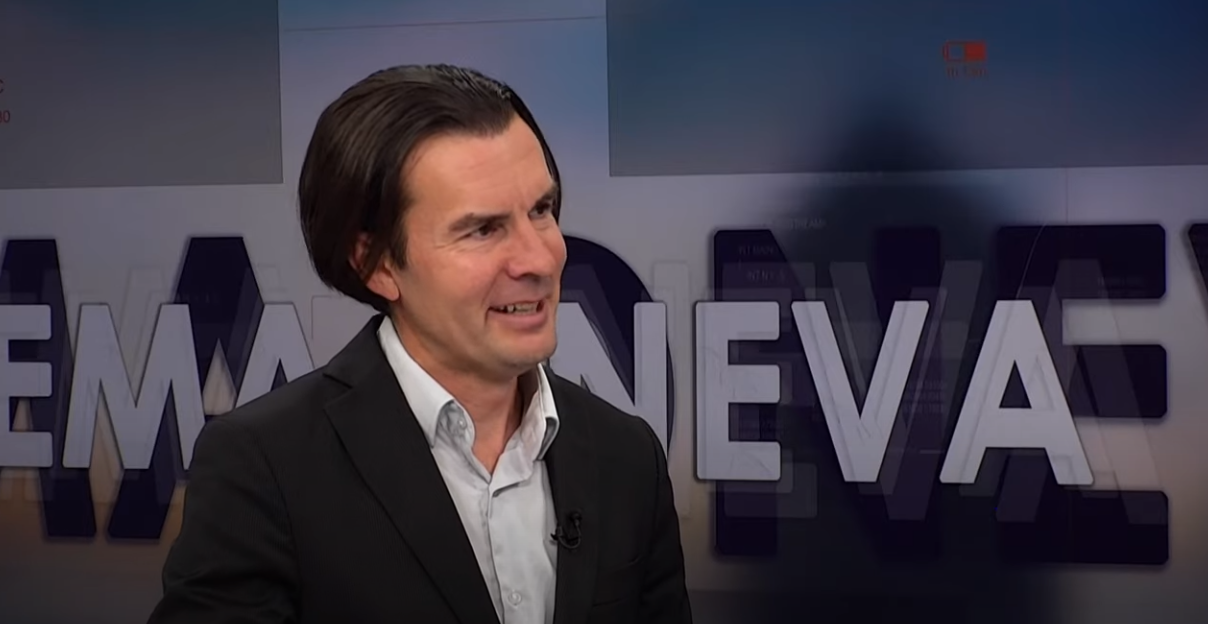By: C. R., STA
the General Director of RTV Slovenia, Andrej Grah Whatmough, appointed the former Director of the Government Office for Communication (Ukom), Uroš Urbanija, to the position of Director of TV Slovenia, even though the journalists’ unions urged him not to do so. Grah Whatmough assessed for Radio Slovenia that the journalists’ opposition has no real basis.
According to radio reports, Grah Whatmough said that he appointed Urbanija because the latter had received the prior approval of the institute’s programme council to be appointed for a four-year term and that, in view of this, he actually had no choice. Regarding the determined opposition of journalists at Radiotelevisija Slovenija (RTVS) against the appointment of Urbanija, he said: “This opposition has no real basis.” He expressed his belief that the new television director will perform his work professionally, or as he should. “If in the past he performed different tasks in another position, I believe that he will perform his current job as a professional as he should: expertly, professionally and independently,” he emphasised.
According to the radio station, Urbanija listed as one of his first measures the regulation of relations and the establishment of adequate communication between employees. He sees any mutual reckoning, insults via social networks and hate speech as inadmissible and unacceptable, and at this point, in his opinion, work must begin.
Meanwhile, the coordination of journalists’ unions RTVS on Friday, after the general director’s announcement that today he will appoint Urbanija to the position of director of Television Slovenia (TVS), assessed that this appointment brings additional unrest to the public media. In addition, given the history of Urbanija’s operation, it means a tightening of relations with editorial offices on television and the risk of pressure on individual journalists and editors, as well as interference with journalistic and editorial autonomy, wrote the president of the coordination and management of the strike committee, Helena Milinković. The coordination started a strike in May, demanding, among other things, journalistic autonomy, and social dialogue.
According to her, if Urbanija, as the director of TVS, participates in the negotiations for the conclusion of a strike agreement with the union side on the employer’s side, this will be a clear sign that the general manager does not want a successful conclusion of the negotiations. The key strike demand, which is editorial and journalistic autonomy, is difficult to negotiate with someone who instrumentalises the professional code and standards for political purposes, she emphasised.
The trade union negotiating side therefore warned the employer that it does not intend to share responsibility for a possible failure of the negotiations. On the contrary, she will propose to the strike committee to consider the feasibility of continuing the negotiations if the employer hinders them by appointing negotiators who are “proven incompetent and instead of resolving conflicts, they deepen them”.
They announced that they will continue the journalists’ strike, as there are no reasons to stop it. The strike committee will decide on further strike activities.
On the other hand, in an interview with Domovina, Urbanija said the following about the director’s position: “The position of director of Ukom is a professional function, not a political one. And the officials who are there are also experts in their field. So, it should not be confused with political functions. Secondly, in the history of RTV, the directors were much more clearly political people, for example even a former MP. I remember a recent interview with Marta Kos, the vice-president of Gibanje Svoboda party, who was also the director of Ukom in the past, and in this interview, she expressed her displeasure that, as director of Ukom, she was not given the opportunity to return to journalism. So, it is a professional function. In addition, unlike Marta Kos, I am not returning to journalism. Editors, responsible editors are autonomous entities within RTV. The position of director is a managerial position and, in this sense, separate from the editorial function.”
